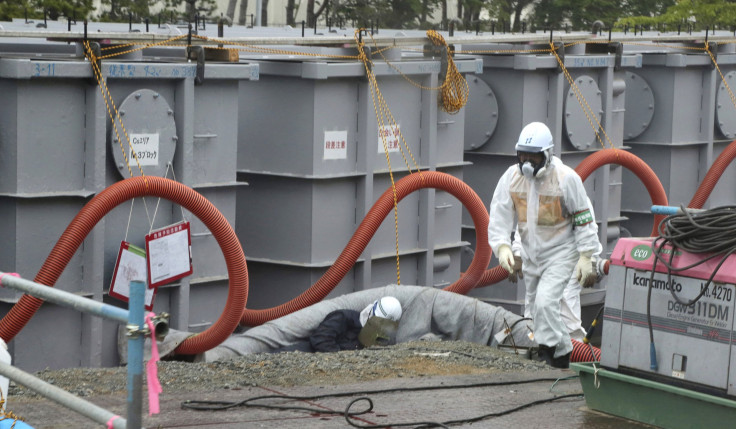Fukushima Nuclear Plant Workers Face Increased Thyroid Cancer Risk, Tepco Says

Tokyo Electric Power Co., or Tepco, the operator of Fukushima Daiichi nuclear power plant, said Friday that about 2,000 people -- 10 percent of those who were part of the emergency crew involved in the cleanup after the plant’s meltdown in 2011 -- face an increased risk of thyroid cancer due to exposure to nuclear radiation.
The figure was based on projections that each worker in the group was exposed to at least 100 millisieverts of radiation, which doctors consider a possible threshold for heightened cancer risk. The figure represents a 10-fold increase in Tepco’s earlier estimate of potential thyroid cancer cases among its workers, Agence France-Presse reported via the South China Morning Post.
The earthquake and tsunami that struck Japan March 11, 2011, destroyed the Fukushima plant's power and cooling systems, resulting in the meltdown of three reactor cores, explosions in the buildings housing them and massive radiation leaks.
Tens of thousands of people were evacuated from the area surrounding the plant to limit radiation poisoning, while the plant crew began to clean up the debris and restore the reactors.
In a report submitted to the World Health Organization last December, Tepco said only 178 workers at the plant faced an increased cancer risk due to radiation.
The report drew criticism from Japan’s health ministry, which questioned the criteria used to arrive at the estimate and urged Tepco to reassess radiation health risks to its employees.
All 1,973 employees now found to be facing increased thyroid cancer risk are eligible for annual thyroid checkups and other health benefits paid for by the company.
On July 9, Masao Yoshida, a nuclear engineer who headed the Fukushima plant when the disaster struck and led efforts to stabilize the plant after the nuclear meltdown, died of esophageal cancer, at the age of 58.
“He literally put his life at risk in dealing with the accident,” Tepco President Naomi Hirose said in a statement. “We keep his wishes to our heart and do utmost for the reconstruction of Fukushima, which he tried to save at all cost.”
© Copyright IBTimes 2025. All rights reserved.






















